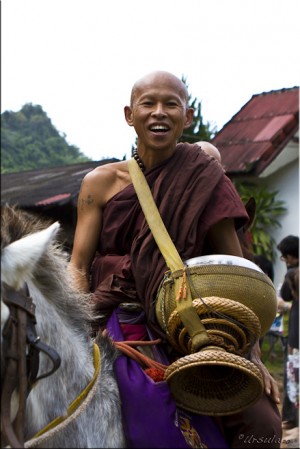
Smiling mounted monk ~ with his begging bowl.
Far up in the hills of the Golden Triangle, in the Mae Chan region of Chiang Rai Province in Thailand, there is a temple where the monks do their morning alms rounds not on foot, but on horse-back, and where kickboxing (Muay Thai) practice is as important a part of their daily routine as meditation and chanting the sutras.
The temple is home to a number of nehn (young novices), many of them Burmese refugees, most of them orphans; a few monks and nuns; about 200 hundred horses and a scattering of elephants, cows and buffalo. How it came to be there reads like the plot of one of those Chinese folk stories: you know, the ones where the heros are fast and smart and pure of heart; where the villainous powerlords bully defenseless villagers; where warriors, cloaked in black, scale walls and descend into fortressses under the cover of darkness; and where anyone can take on demon form and fly through the air to engage in hand-to-hand battles of epic proportions.
Almost fifty years ago, so the story goes, in the northwestern-most corner of Thailand, an ethnic Tai Lue woman desperately wanted to have a child. She had already lost five babies in their infancy, and so she went to the ancient Lanna temple on the nearby mountain of Doi Tung to pray to the Buddha image there and ask for assistance. Some nights later, she dreamt that a white horse came and carried her away – for miles and miles. Shortly after, it was confirmed that she was pregnant.
The child, Samer Jaipinta, was a fussy baby, crying all the time, so the parents consulted an astrologer. The astrologer told them that the child was “not normal” and needed an elephant and a horse as guardians. Naturally, Samer’s farming parents could not afford this, so his father drew pictures of the animals above the door of their home and taught the child that these animals were his friends and protectors.
Samer took up Muay Thai at thirteen. Inspired by the warrior spirits of the fighting cocks his father raised, he became a champion fighter, who, according to one report, only ever lost three fights out of the hundreds he entered. He studied law in Bangkok, but gave up to join the cavalry when his father died. By age thirty, he was married, with children, and about to challenge for the Muay Thai world championship, when he gave it all up to go to fast and meditate, sitting on a rock in the forests of Mae Sai for 15 days. Wasps nested on his body: “It was as though they were my teachers. Each time I couldn’t focus, they would sting me.”
He ordained as a monk, underwent four days of ritual and protective tattooing and spent the next six years travelling through those mountainous border regions, providing pastoral care in an area where people, gems, arms, and drugs slip through the jungles to and from Myanmar. He witnessed first-hand the impact of violence, fear and drug addiction on the mountain villages in the wake of the wars between the drug lords. He founded the Monastery of The Golden Horse, giving a home to young boys who might otherwise end up as recruits in United Wa State Army. He teaches his novices Muay Thai in addition to more usual dhamma teachings, and together they ride out into the countryside, educating people against the dangers of drugs, and using their martial arts skills when required.
His ongoing battle against drug growing and trafficking has earned him the support of the Thai army and the disapprobation of the powerful drug lords. Stories are told of his miraculous survival against numerous attacks and assassination attempts. He sees no other option: “I have to live my life in an honest and direct way,” he says. “My life is like a candle and provides light for those around me. If it blows out, this is fate, and nothing can be done about fate.”
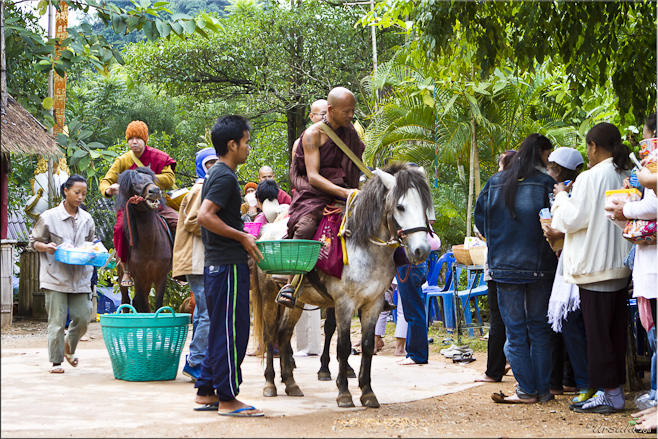
The morning alms collection at Wat Pra Aacha Tong is "Unseen" anywhere else in Thailand.
.jpg)
... make these quiet monks invincible.

Protective tattoos plus Muay Thai...

Sandle-clad monks in the saddle.

One of the fabled white horses keeps watch.

Alms Rounds

The horses get their breakfast; I have never seen horses eat corn-on-the-cob so daintily!

These women have travelled from the other side of the country to pay their respects.

Little Nehn (Novice)

Muay Thai, like other Asian martial arts, has a strong spiritual component.

Lone Pony

After the alms rounds, the morning dhamma talk, with prayers, is conducted outdoors.

People come from near and far for morning prayers.

After prayers, faithful swap hundred-baht notes for twenty-baht notes that have been specially blessed.

A beautiful smile comes with the blessings.

The twenty baht notes have numbers deemed to be lucky.
The wat (temple), unlike most, is not ornate. Phra Kru Ba Neua Chai, as he is now known, persuades the locals to put their money into schools and orphanages and teachers’ salaries, rather than into elaborate temples.
 He was not there the morning we visited in October, but his positive energy was all around us. By all accounts, he is a striking man, doing his bit for his corner of the country.
He was not there the morning we visited in October, but his positive energy was all around us. By all accounts, he is a striking man, doing his bit for his corner of the country.
I like stories with a happy ending. ‘Till next time.


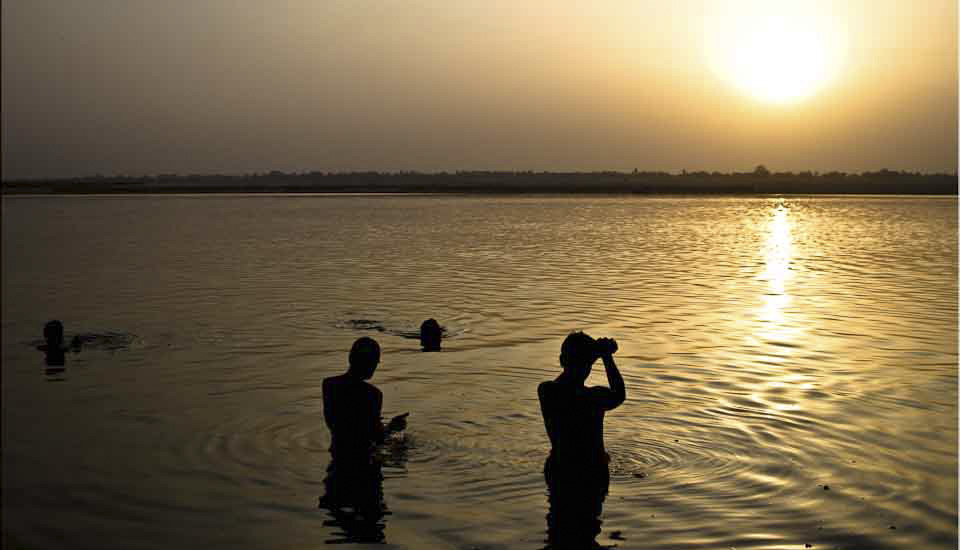
.jpg)

















.png)
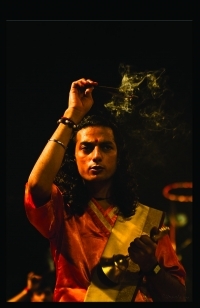
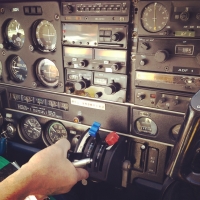
Really lovely post Ursula – a great story! Thanks for sharing.
Fantastic, you’ve managed to share with us places most will never see and describe them in such a way one almost feels as though they were there…thank you
Greetings, Signe and Lisa!
So nice to have you along for the “ride”. 😉
[…] first markets we visited that day were local ones. After “making merit” with the horse-riding monks early in the morning and visiting the Royal Mae Fah Luang Gardens at Doi Tung, we stopped to […]
Dear Monks,
I am very ill with depression. Can you please perform
some rituals to cast out the demons in me.
Thank you.
Regards.
From: Tan Beng Huat.
Malaysia.
I am very sorry to hear you are unwell. Good luck with your recovery.
[…] http://www.ursulasweeklywanders.com/travel/mounted-monks-wat-pra-archa-tong-chiang-rai-thailand/ […]
hello Ursula,
I was wondering how i would be able to get in touch with the monks and do you think they are willing to train people in Muay Thai?
Hi AJ,
I’m not sure if these monks train anyone other than their novices – and most of them don’t speak or read English! Still, there are plenty of good Muay Thai gyms around Thailand, so it’s not hard to get started. 😀
Hi, we will be traveling from Bangkok to chiangrai by air. Is there a local agent that can arrange to bring us to wat pra archa tong?
Hi Jesline,
Thanks for the visit! I’m pretty sure any Chiang Rai travel agent will be able to get you there. We visited as part of a day tour in the area. Enjoy!